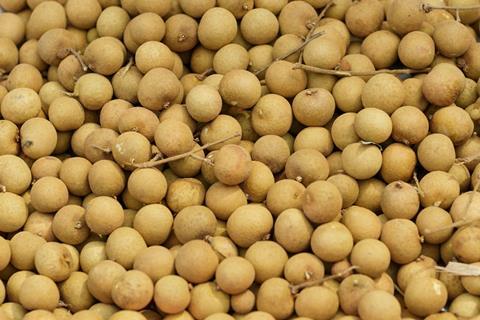Market access to China promotes industry boom for Cambodian longan

Cambodian longan exports are up almost 500 per cent since market access to China was announced in October 2022.
According to the latest figures from the country’s Ministry of Agriculture, Forestry and Fisheries, Cambodia exported 17,497 tonnes of fresh longan in 2023, marking a 454.59 per cent increase on the previous year. Ministry of Agriculture, Forestry and Fisheries spokesperson Im Rachna told The Phnom Penh Post in September 2023 the surge in export volume was due to increased awareness of the fruit in Chinese markets, noting that Cambodian longans are being heavily promoted in various Chinese online marketplaces, including Alibaba.
“The quality and delectable taste of our longan is now recognised by the Chinese people,” she said. “During Prime Minister Hun Manet’s recent visit to China, he was served fresh Cambodian longan. This was a source of pride for the Kingdom’s fruit farmers.”
Phot Saphanborey, head of longan processing and export at Pechenda Fruit Production (PFP) told The Phnom Penh Post “favourable climatic factors, expanded cultivated land and improved techniques have contributed to the enhanced yield, quality and value of the fruit.
Saphanborey added “strong collaboration between plantation owners, processing plants and packaging companies” has contributed to the successful export volumes.
Export growth is predicted to continue in 2024 according to Saphanborey, as long as the industry can manage challenges such as rising production costs and weather.”
“The yield of longan to be harvested in 2024 may be higher than last year as farmers have expanded their cultivation in recent years, and prices may be higher. However, this is just a forecast, because everything depends on whether there will be sufficient rainfall,” he said.
While the majority of Cambodian fresh longan is exported to China, Thailand and Vietnam also receive notable volume and the industry is working on access to more markets to provide an outlet for increased volumes.
“Currently, we are also negotiating on the issue of phytosanitary and hygienic barriers to open export gateways to more countries,” Saphanborey said.



